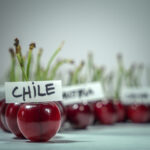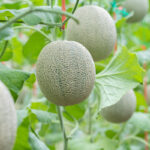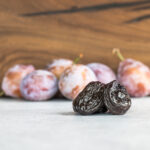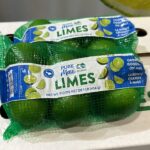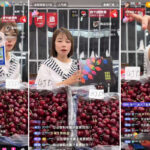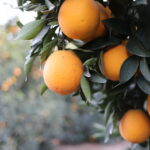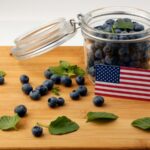Apeel avocados expected at every U.S. grocery store within a year

Apeel Sciences says that avocados treated with its shelf-life-boosting product could be seen at every grocery store in the U.S. within one year.
The California-based company has developed a plant-derived coating that is sprayed onto freshly harvested produce to reduce water loss and prevent oxygen from getting in.
"By doing that you can get a two or three-times shelf life extension without refrigeration, without controlled atmosphere and without any kind of artificial preservatives," Apeel Sciences senior director of marketing Michelle Masek told Fresh Fruit Portal at last week's PMA Fresh Summit in Orlando, Florida.
"The product is approved for use on USDA organics and is also considered FDA GRAS [Generally Recognize as Safe]. The reason is that we are using materials that are found in every single bite of fruit - we like to say we’re looking to nature to use food to preserve food."
Through partnerships with companies including Del Rey Avocado and Eco Farms, Apeel avocados are already available at Kroger, Costco and Harps Food Stores in the U.S.
Masek said that the product had come about as the result of "some pretty breakthrough thinking at the intersection of material science and food."
Inspired by the way in which steel is made into stainless steel by applying a thin oxide barrier, Apeel Sciences founder and CEO James Rogers searched for a similar solution for fruit and vegetables. By using the lipids found inside the skins, peels, and pulps of fruits, the company achieved just that.
The Apeel coating can be made from any plant that grows above the surface of the water that has a cuticular layer, Masek said. Excellent sources include agricultural byproducts such as grape pressings and tomato pomace.
Through retrofitting its equipment into packhouses, the Apeel coating can be sprayed onto produce as it comes down the line.
Although avocados are the only produce item currently available with Apeel on store shelves, the company is selling its products to companies in the citrus and asparagus industry.
Masek highlighted that it could also be used for a vast range of other fruit and vegetables. Berries are a great candidate, she pointed out, as their short-shelf life can be significantly extended by slowing moisture loss and therefore delaying the onset of grey mold.
There is a significant level of interest in the solution thanks to the numerous benefits potentially available to the entire supply chain.
"If I'm a retailer I'm now finding money that was evaporated from my shelf, I'm able to open up new markets and supply chains, I'm able to change shipping modalities, and I'm able to move from air freight to sea freight, which is much greener and much cheaper. So there are all types of operations savings that come from simply having more edible, marketable shelf life," she said.
"Right now retailers are realizing those benefits. Suppliers and growers are driving brand preference, and they're realizing those benefits, and so in the next year we would anticipate we could walk into any grocery store and get an Apeel avocado, and potentially other categories too, which is really exciting."
Masek said that Asia would be a key market for Apeel, in part as there is rapid demand growth for avocados, adding that approval is pending from the European Commission.
While food waste has often been thought of as a loss for everybody, she explained Apeel is helping to change that.
"What the technology is demonstrating at Apeel is that food waste is a revenue opportunity for everybody," she said.
"For the grower, packer and also the retailer to essentially unlock money from their supply chain that was previously untapped, and in doing so create a delightful experience for the end consumer who's getting a better piece of produce at no extra charge to them."



















